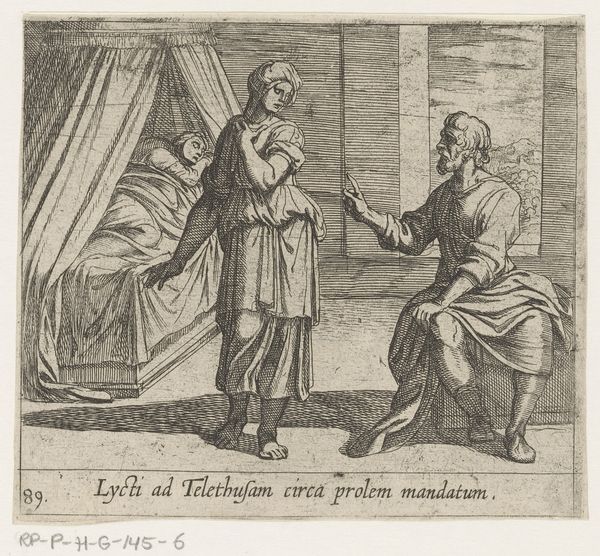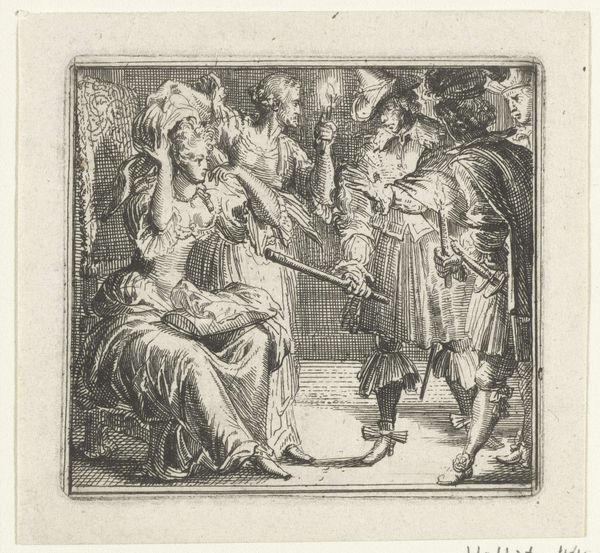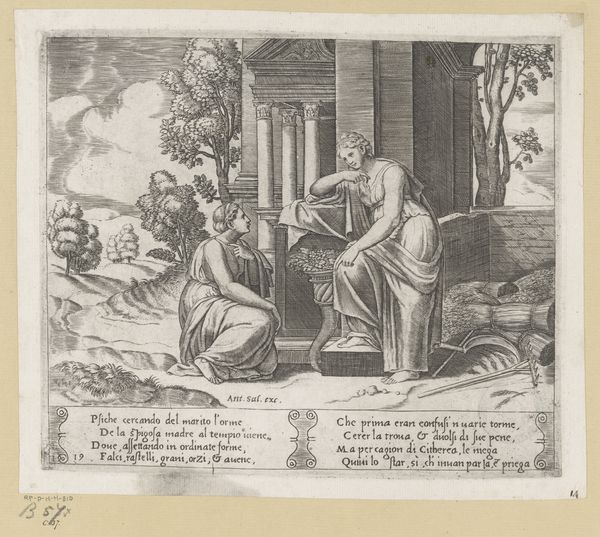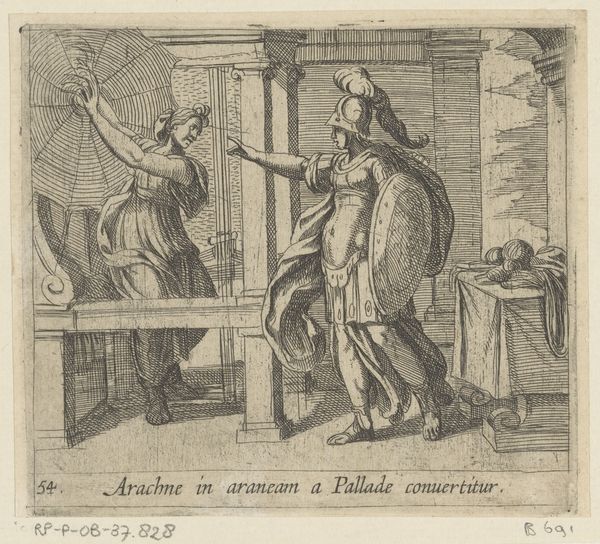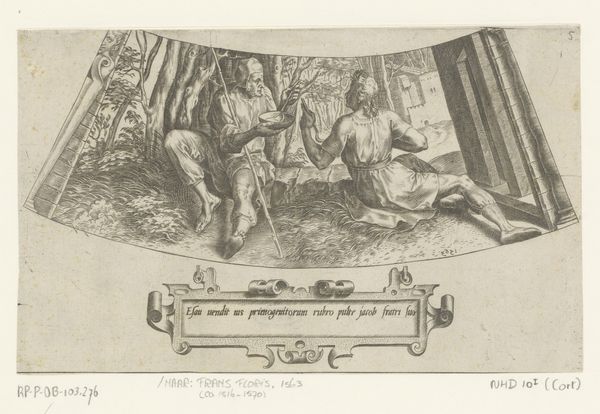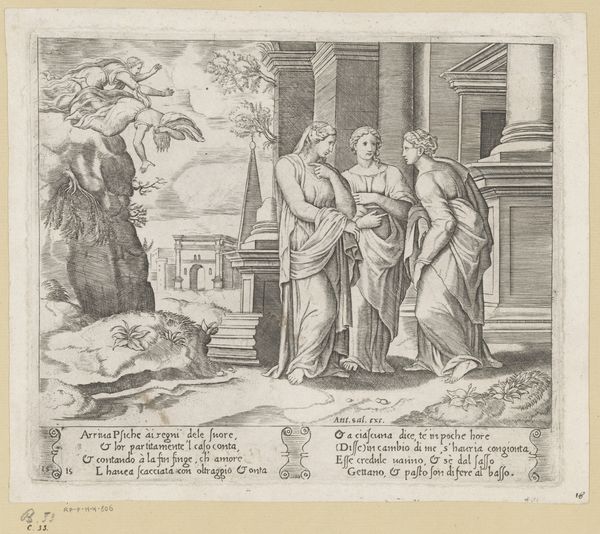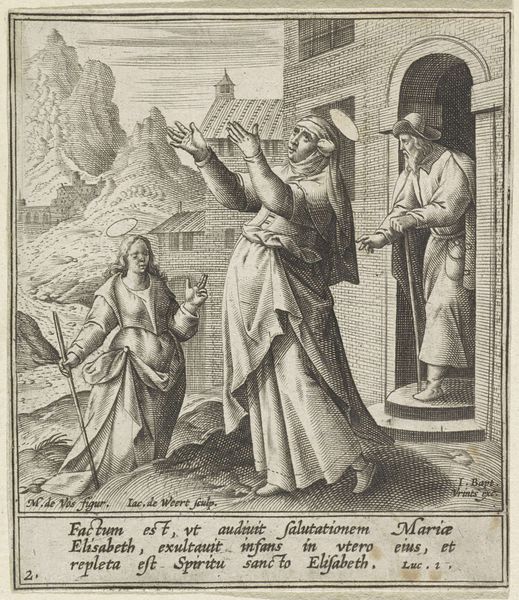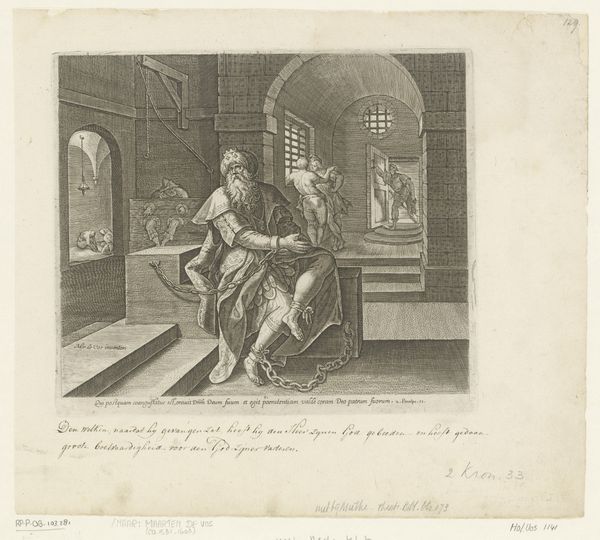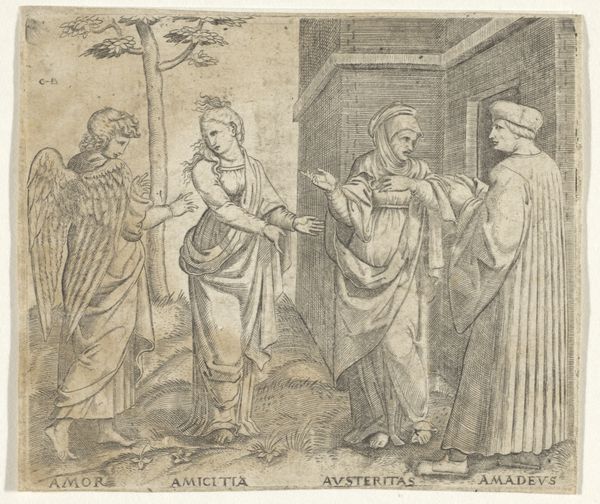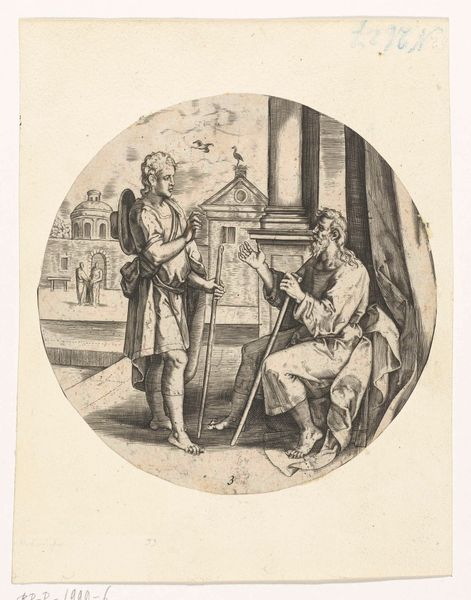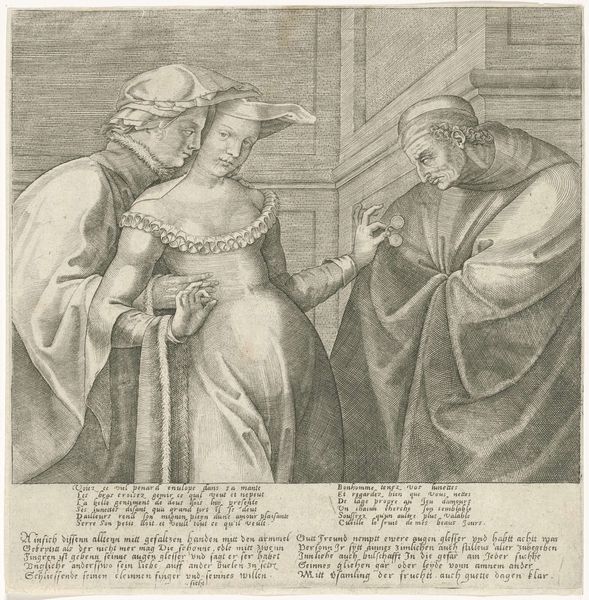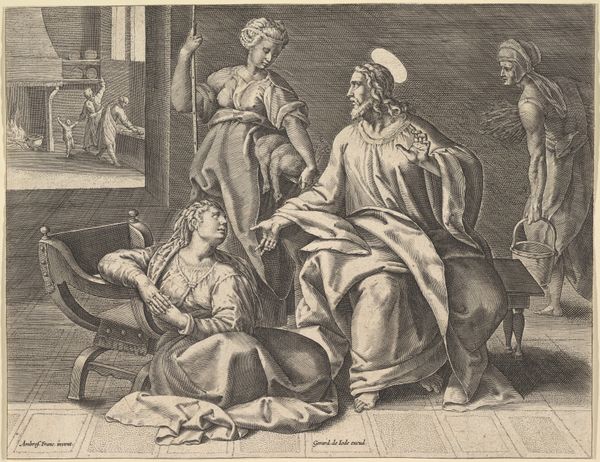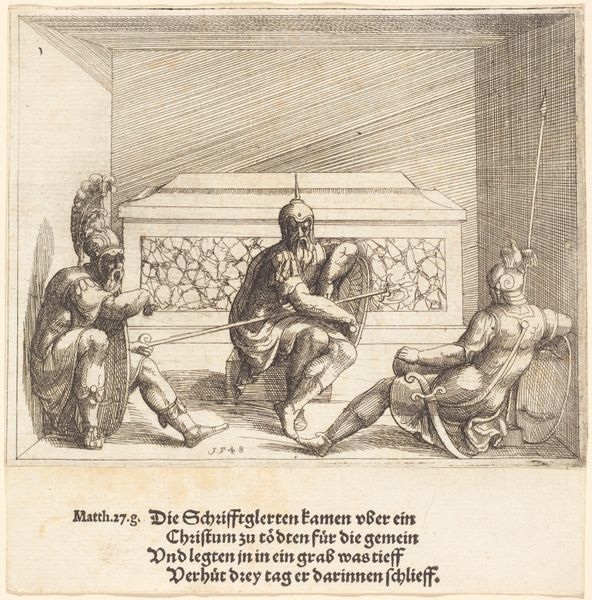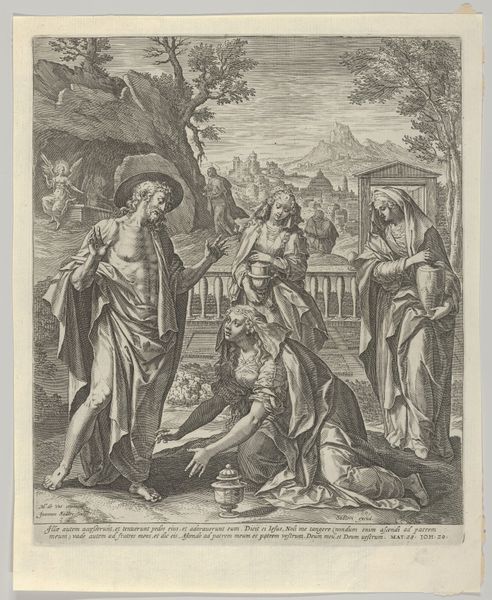
print, engraving
#
allegory
#
baroque
# print
#
figuration
#
italian-renaissance
#
engraving
Dimensions: height 104 mm, width 117 mm
Copyright: Rijks Museum: Open Domain
Antonio Tempesta etched this image of Pomona and Vertumnus in the late 16th or early 17th century. Here we see Vertumnus, god of seasons and gardens, disguised as an old woman. The symbolism of his disguise suggests a profound commentary on transformation and persuasion. The motif of disguise and transformation appears throughout art history, from classical mythology to Shakespearean drama. Think of Zeus transforming into various forms to seduce mortal women. The old woman figure, often associated with wisdom or deceit, is a recurring symbol. Consider how this archetype evolves from the wise crone in fairy tales to the deceptive witches in folklore. This resonates with our collective memory, tapping into subconscious fears and desires linked to aging and hidden intentions. The emotional power of this image lies in the tension between Vertumnus’s true identity and his assumed persona. This tension engages us on a deep, subconscious level, reminding us of the fluid nature of identity and the persuasive power of appearances. This symbol continually resurfaces, evolving and taking on new meanings as it travels through time.
Comments
No comments
Be the first to comment and join the conversation on the ultimate creative platform.
